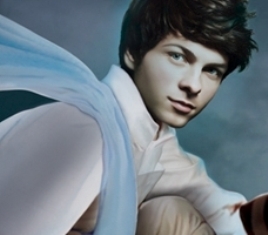
Smile

|
For the world-wide commemoration of the 200th anniversary of Wolfgang Mozart's death, the French composer Olivier Messiaen wrote a short piece he titled "Un Sourire" -- a smile. "Despite all his sorrows and suffering," Messiaen wrote, "Mozart never stopped smiling. His music smiles, too."
Cincinnati Opera provided a prime example of that Wednesday night with a light-hearted performance of "The Magic Flute" that had the Music Hall audience of 2,600 smiling during and after. The production of Mozart's 1791 final opera, which repeats Friday and Sunday, is the last in the company's 2011 season.
It was a winner all around. The fine, balanced cast was led by Nicole Cabell as the captive princess Pamina and Shawn Mathey as her rescuer, Tamino. Cabell has made a specialty of Mozart roles, and her warm, creamy voice captured the turbulent emotions of a young woman trapped between conflicting desires -- her mother's and her would-be love's. Mathey's princely stature embodied a man on a mission to rescue the distressed damsel he loves, equally noble and ardent.
As Mathey's companion, the birdcatcher Papageno, Brett Polegato was completely at ease as both singer and comic relief. Papageno is a screw-up from the get-go, but Polegato projected the good-hearted nature that, in the end, wins the character the wife he longs for. As that loving girl Papagena, Meghan Tarkington was a charmer, both in disguise as an old crone and teenage coquette. Both made their Cincinnati Opera debuts in the roles.
These mere mortals are all part of a grander good-vs.-evil conflict whose forces are marshaled by Sarastro, high priest of Isis and Osiris, and the Queen of the Night. Oren Gradus, also in his company debut, made a kind and stately high priest, consoling Pamina that her loneliness would soon end even as he beckons Tamino to prove his worth by undergoing the deadly trials of the temple. One wishes his vocal authority extended into his lowest register, which did not project well, but it proved not to be an insurmountable challenge.
Audrey Luna, the highest-billed among the many cast members with a University of Cincinnati College-Conservatory of Music pedigree, concerned the hearer on first appearance with a small vocal presence. Apparently, though, all she needed was a moment to warm up. In her first aria, "Zum Leiden bin ich auserkoren" (To suffer have I been selected), the fireworks had begun; by Act II's showpiece, "Der Hölle Rache" (Hell's Rage), the crystalline coloratura -- high Fs and all -- was its own Riverfest show and drew well-deserved cheers.
Steven Cole had the unenviable task of singing the lascivious, as the program aptly put it, Monostatos. Nevertheless, he managed to convey the genuine human motivation behind the lecherous behavior.
Two well-matched trios -- Jacqueline Echols, Audrey Walstrom and Davia Bandy as the Queen's Three Ladies, and Melissa Harvey, Alisa Jordheim and Hilary Ginther as the Three Spirits -- rounded out the able supporting cast with the excellent sounding chorus, prepared by their long-time chorus master, Henri Venanzi.
The production was supported elegantly from the orchestra pit by members of the Cincinnati Symphony Orchestra under conductor Bernard Labadie in his Cincinnati Opera debut. Labadie made his name as a Baroque and Classical specialist, leading the Quebec-based group Les Violons du Roy for more than a quarter century. He is no stranger to Mozart operas, though; he led "Magic Flute" in his Metropolitan Opera debut in 2009.
There is a limit to the adjustments modern instruments can make for historic performance practice, but Labadie skated nowhere near the edge. Besides using a rather small group -- in the low 40s -- he primarily turned down the vibrato knob on the strings and led with spry tempi which reinforced the music's playfulness. The orchestra responded with a beautiful, polished tone, well balanced and with fine intonation (which lies all the more exposed without vibrato).
In a somewhat bold venture, the extensive dialogue was performed in English. Some found this jarring when juxtaposed with the sung portions still in the original German. Given the work's low-brow origins, though, it seemed an excellent decision to improve accessibility for the audience, many of whom identified themselves beforehand as first-time opera-goers,
The night would have succeeded on musical merits alone, but the clever production by Indiana University Opera Theatre and lively direction by Tomer Zvulin -- another company debut -- made it a visual feast, too. The sets by C. David Higgins were dominated by imposing stone walls covered with gold Masonic-themed symbols, symbolizing the characters' quest for virtue and enlightenment. In contrast, the internal set elements represented the naturalistic side of human character with evocations of woods, flowers, and Gothic and Art Nouveau architectural fragments and paintings.
Other visual moments not to be missed: The Queen's entrance, half Erte, half "Wicked"; Papageno's birds, done "Lion King" style with fine puppeteering; and, last, that man in red looking approvingly at the whole undertaking. That's Mozart himself, channeled by Joshua Steele.
The challenge of staging "Magic Flute" is that its story is, well, kind of dumb, even for opera. The characters (Pamina and Tamino somewhat excepted) are as deep as cardboard, and the plot is about as sensible as a 1920s Gershwin musical. And, really, why is Monostatos even there? Add to that some pretty heavy-handed Masonic symbolism (Mozart was a Mason), a lot of sexist and borderline racist sentiments by today's standards, and one wonders why bother.
To answer that, and the woman my companion overheard at intermission complaining that this wasn't real opera because it was actually funny, I suggest seeing this production, which celebrates the show's humor and roots in German singspiel. It's opera's 18th-century answer to Broadway. Enjoy it. Smile.